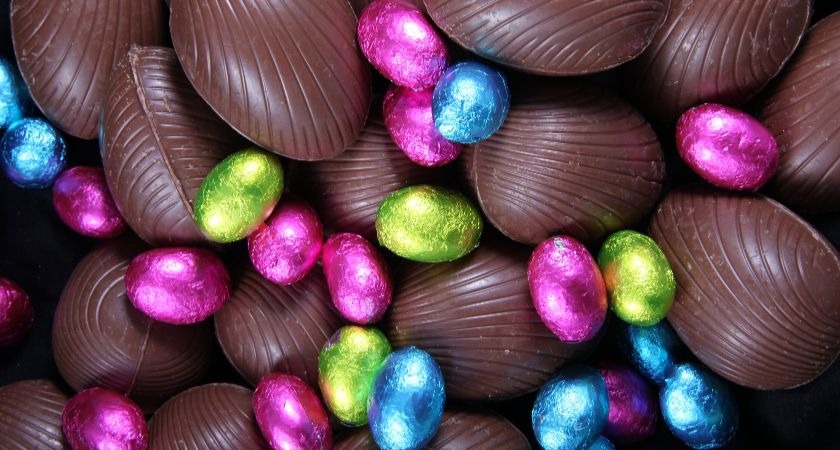NEVER mind Christmas, Easter is the most important holiday in the Christian calendar.
Preparation starts on the first day of Lent, forty days before Easter Sunday, when Christians stop eating meat and quit something they cherish - be it chocolate, alcohol or cigarettes.
From the first day of Lent onwards, it's tradition for fish to be eaten each Friday, and it is usually cooked in soup form.
Easter Week is the week leading up to Easter Sunday and is recognised as the time to pull your socks up and get everything in order for the following weekend.
Palm Sunday falls a week before Easter Sunday and commemorates Jesus’ entry into Jerusalem a few days before his death and resurrection. As he made his way into the city his legion of followers laid down cloaks and palm branches on the path for him to walk on. Hence the name.
On Palm Sunday Irish mass goers take part in a procession carrying palm branches to the altar of the church.
Next up is Holy Thursday, another day for attending mass, this time to remember the story of the Last Supper when Jesus shared a final meal with his disciples the evening before his crucifixion.
That brings us up to Good Friday, day one of the Easter weekend.
It can be difficult to verify whether or not certain traditions are still celebrated, or if they're celebrated elsewhere in the world other than Ireland.
Therefore, we’ve decided to lay out for you the Irish traditions as far as we know them. Feel free to take any or all of them on board this Easter.
Good Friday
- Cleaning the house from top to bottom.
- Blessing of the house by the local priest.
- Planting a small quantity of seed (crops not flowers) to bestow a blessing on the family.
- Go to confession and remain quiet for part of the day.
- Avoid any possible bloodshed by downing your tools and refraining from working outdoors.
- Mark an Easter egg on Good Friday to be eaten on Easter Sunday (just the one!).
- Visits should be paid to holy wells and graveyards.
- Get a haircut to prevent headaches (no official confirmation on this one yet).
- No fishing to be done from boats – only seafood gathered on shore should be eaten.
Easter Saturday
- Be a good Christian and go to church. It doesn't need to be mass, just go and say a few prayers.
- Give yourself and your nearest and dearest a holy water blessing. Drink 3 sips of it for health and sprinkle on each family member for good luck. Farm owners often take some to sprinkle on cattle.
- Attend Easter vigil on Saturday night. At 11 o’clock, all lights in the church are turned off and a Paschal candle is lit to symbolize Christ’s rising from the dead.
Easter Sunday
- Rise with the sun and dance in celebration.
- Butchers carry out a mock funeral in honour of a dead herring. A “herring procession” then marches to the local church. This symbolizes the end of Lenten abstinence. Some people believe you should whip the herring too.
- Take down the “spolin meith na hinide,” a small piece of meat pinned up on the wall during Lent, and burn it to give a pleasant smell to the inside of the house.
- Conduct a “cludog”, where children gather eggs and roast them on a special device on a farm. Shells are saved and placed around the bottom of a Maybush.
- Easter feast – dig into a typical Sunday roast with your loved ones. The options are wide open, but people usually have lamb with this meal.
- Easter eggs are traditionally only given to children after they've eaten their dinner, but over the years that has become much less the case. If you don't fancy a chocolate egg, why not dig into a hot and buttery hot cross bun?
- Celebrate with a “cake dance”, a contest where the best dancer wins a cake.
- Build a bonfire to close out Easter. Don't be confused with Halloween, there are no spooky connotations to this whatsoever.
Non-religious traditions
With the decline of the church’s influence in Ireland in recent years and the rise of secularism, it’s important to point out some of the non-religious options that exist for the non-believers amongst us.
This year sees the first Good Friday in over forty years where pubs and off-licenses will remain open, breaking an age-old religious tradition. People are also encouraged to shop for new clothes and indulge in some personal grooming on this day.
Food is the one tradition that applies across the board with believers and non-believers on Easter Sunday. Not only is the feast a mouthwatering prospect, but it is the one day a year when you can stuff your face with calorie-laden Easter eggs and hot cross buns without anyone giving you a look.
More than 5 million Easter eggs are sold in Ireland each year. If the weather permits, kids run off in all directions in search of Easter eggs in the great Easter egg hunt. Prepare for severe sugar crashes!
Easter Monday is a public holiday, and a lot of people get Good Friday off too nowadays. Thus, it’s the perfect opportunity to take a big time out from the rat race, and spend some quality time with family friends. An excuse is never needed for that!



